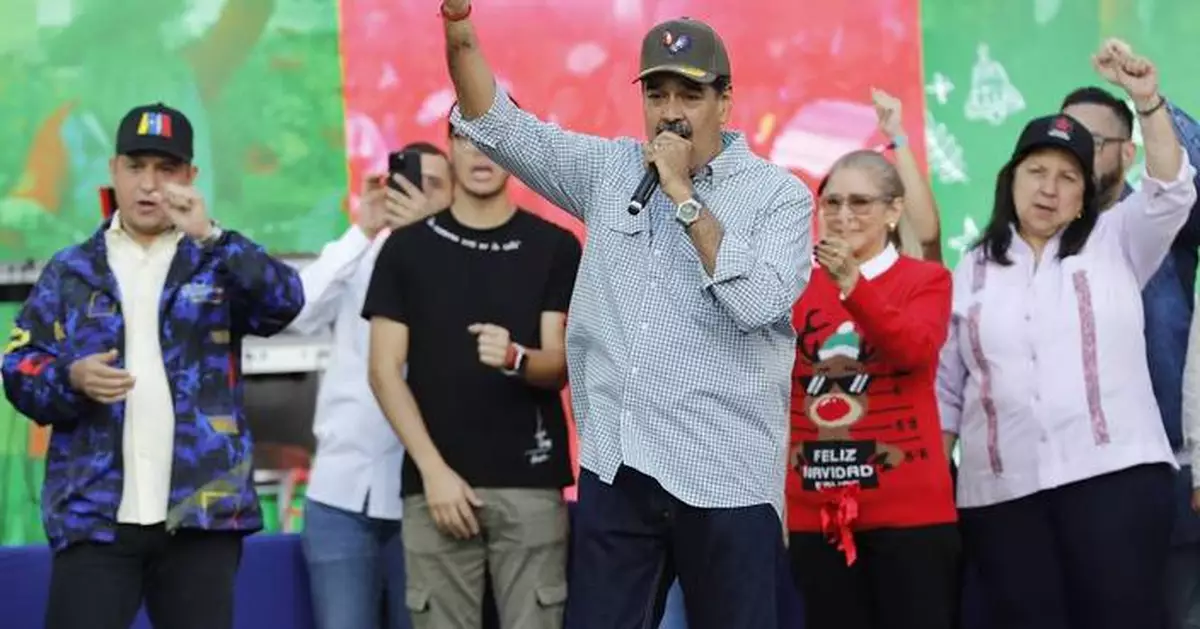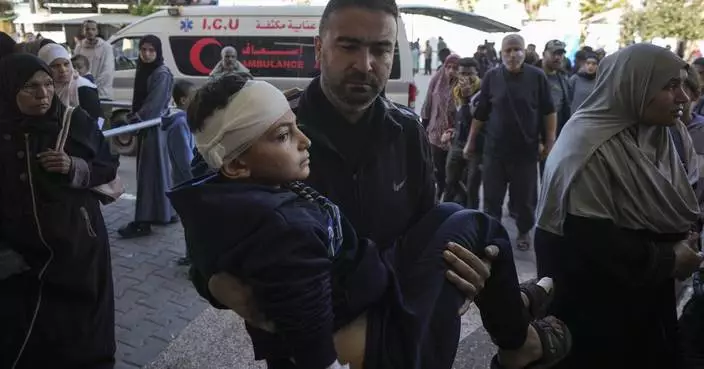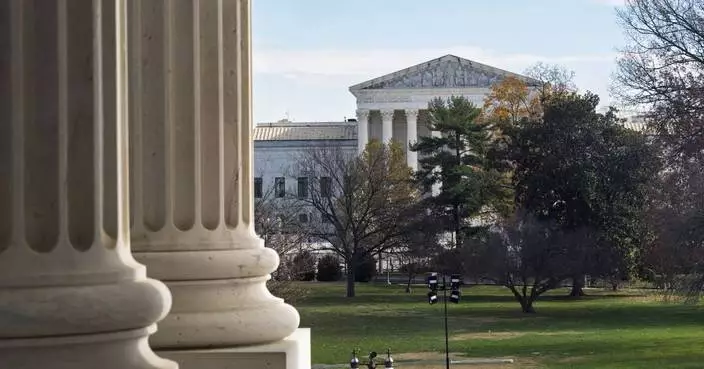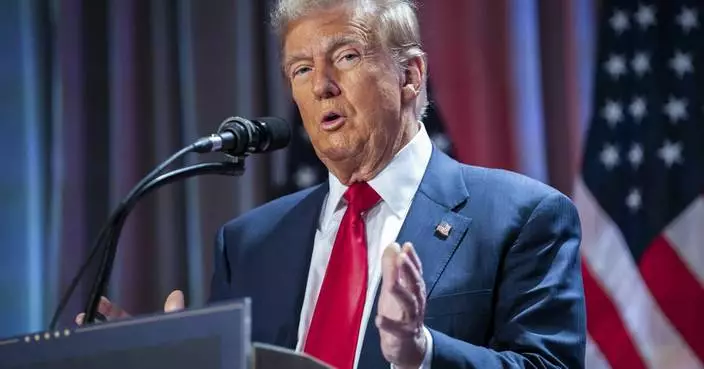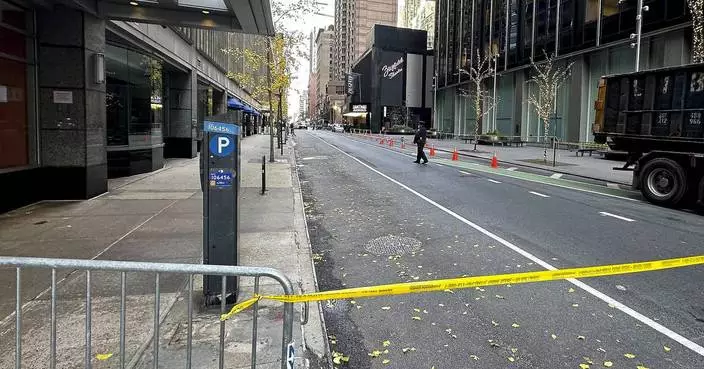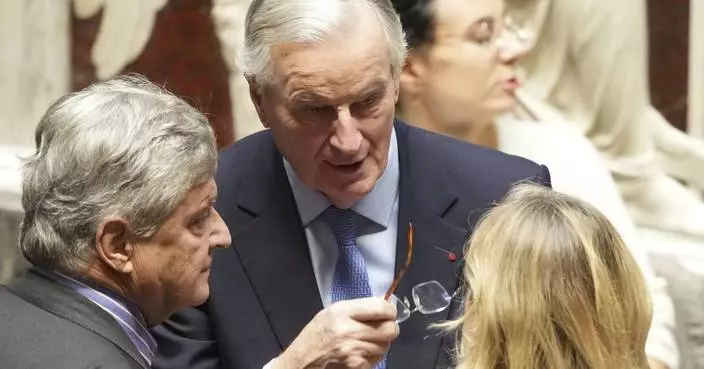MIAMI (AP) — One of Venezuela's most popular bands canceled its homecoming tour after President Nicolas Maduro criticized the group for what he said were sexist lyrics — a lashing out that many said was an attack by the leftist leader over the band's embrace of his political opponents.
Rawayana, a 2025 Grammy nominee, was to play across the country to sold-out shows, starting this week but the concerts were abruptly cancelled on Tuesday night.
On Sunday, Maduro laid into the group for its hit song "Veneka" — a term long used by Latin Americans to refer to Venezuelans but which has become pejorative over the past years as millions of Venezuelans fanned across the continent, fleeing poverty and Maduro's increasingly authoritarian rule.
“The group that made that song didn't just mess things up, they stepped in it, they stepped in it,” an angry Maduro said at a rally in Caracas, the country's capital. “The women of Venezuela are called Venezuelans with respect and dignity. They are Venezuelans, not venekas!”
Rawayana took the term for the name of its catchy tune, which mixes salsa and an electronic dub groove with misogynistic lyrics. Still, the band claims the song celebrates Venezuelan women’s beauty and strength.
The tour was to be something of a homecoming for Rawayana, which was formed in Caracas in 2007.
Some of its members, like millions of Venezuelans, have abandoned their homeland in recent years as the economy nosedived and Maduro tightened his grip on power. While the group has mostly steered clear of politics, it leveraged its powerful voice among Venezuelan youth to protest Maduro's reelection this summer amid widespread allegations of fraud.
“This is how we say goodbye to our country until further notice,” the group said in a post on social media post announcing the cancelled tour. “Our music is not meant to divide....Peace.”
Cusica, a two-day music festival in Caracas that was also to begin this week, was also cancelled. The festival's organizers were also the producers of Rawayana's Venezuelan tour.
Many Venezuelans took to social media to denounce what they consider an unfair attack on the group by Maduro.
“I've never gone to a concert in my 23 years and with great effort I managed to gather my money,” said one upset fan on Instagram. "We can't even be happy any more."
Beto Monte, the group's vocalist and guitarist, declined an interview request, citing security risks. “What can be seen a mile away doesn't require much explanation,” he said in a statement provided to The Associated Press.
Rawayana was last month nominated for best Latin Rock album at the Grammys taking place in February in Los Angeles

A billboard advertising concerts of Venezuelan band Rawayana stands on a main highway in Caracas, Venezuela, Wednesday, Dec 4, 2024. (AP Photo/Cristian Hernandez)

Venezuelan president Nicolas Maduro speaks to supporters during a march in Caracas, Venezuela, Sunday, Dec. 1, 2024. (AP Photo/Cristian Hernandez)
MEXICO CITY (AP) — Mexican soldiers and marines have seized over a ton of fentanyl pills in two raids in the north, with officials calling it the biggest catch of the synthetic opioid in the country’s history.
The raids came after a sharp drop in fentanyl seizures in Mexico earlier this year, and days after U.S. President-elect Donald Trump threatened to impose 25% tariffs on products from Canada and Mexico unless those countries cracked down on the flow of migrants and drugs across the border.
Experts say the timing may not be a coincidence.
“It is clear that the Mexican government has been managing the timing of fentanyl seizures,” said security analyst David Saucedo. “But under the pressure by Donald Trump, it appears President Claudia Sheinbaum's administration is willing to the increase the capture of drug traffickers and drug seizures that Washington is demanding.”
Saucedo said it's clear the Mexican government "doesn't see fentanyl as one of its own problems, and fighting it isn't its priority,” He added there would only be big busts “when there is pressure from Washington.”
Mexico’s top security official said soldiers and marines late Tuesday spotted two men carrying guns in the northern state of Sinaloa, home to the drug cartel of the same name.
They chased the men, who ran into two houses. In one house soldiers found about 660 pounds (300 kilograms) of fentanyl, and in the other a truck packed with about 1,750 pounds (800 kilograms) of the drug, mostly in pill form.
“In Sinaloa, we achieved the biggest seizure in history of fentanyl,” Public Safety Secretary Omar Garcia Harfuch wrote in his social media accounts. Several guns were also seized and two men were arrested.
President Sheinbaum said Wednesday that “this is an investigation that had been going on for some time, and yesterday it bore fruit."
But that claim contrasts with the seemingly random nature of the bust, which started when a military patrol “noticed the presence of two men carrying what appeared to be guns.”
In the past, Mexican security forces have sometimes used the story of following armed men running into houses as a pretext to enter homes without search warrants. In at least one case, the government version was disproved by security camera footage.
The latest haul was striking because fentanyl seizures in Mexico had fallen dramatically in the first half of the year. At some points during the summer, under former President Andrés Manuel López Obrador, federal forces reported seizures amounted to as little as 50 grams (2 ounces) per week.
Figures for the first half of 2024 show that Mexican federal forces seized only 286 pounds (130 kilograms) of fentanyl nationwide between January and June, down 94% from the 5,135 pounds (2,329 kilograms) seized in 2023.
The synthetic opioid has been blamed for about 70,000 overdose deaths annually in the United States, and U.S. officials have tried to step up efforts to seize it as it comes over the border, often in the form of counterfeit pills made in Mexico from precursor chemicals largely imported from China.
López Obrador always denied that fentanyl is even produced in Mexico, though experts — and even members of his own administration — acknowledge that it is.
And if Mexico doesn't go after those fentanyl production facilities, then they will still be churning out similar quantities in the future.
“It's a very very big seizure,” Saucedo said. “But if they don't dismantle the labs, this kind of production will continue.”
Also Wednesday, the U.S. State Department announced it was increasing the reward for the top leader of another cartel, Nemesio Oseguera, from $10 million to $15 million.
Oseguera, known by his nickname “El Mencho,” leads the Jalisco cartel, which like Sinaloa, is heavily involved in the manufacture and distribution of fentanyl and methamphetamines.
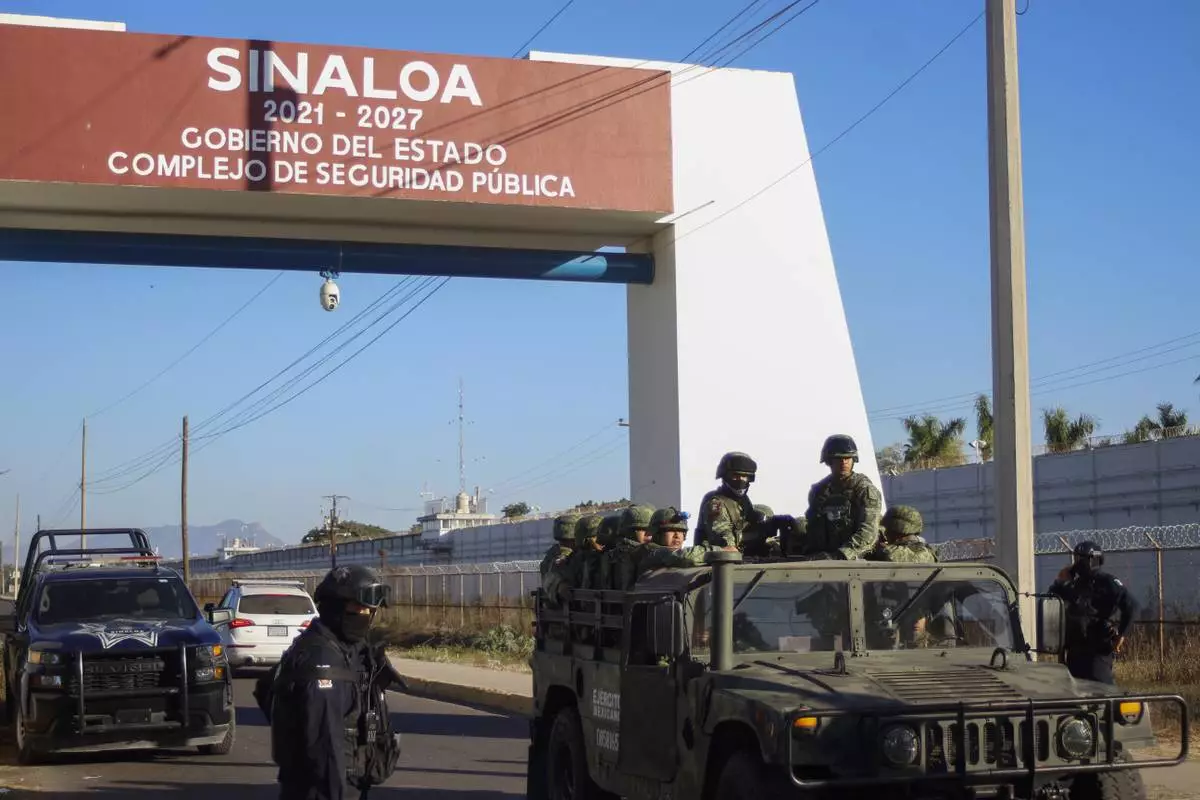
FILE - Mexican military and police patrol in Culiacan, Sinaloa state, Mexico, Jan. 6, 2023. (AP Photo/Martin Urista, File)




